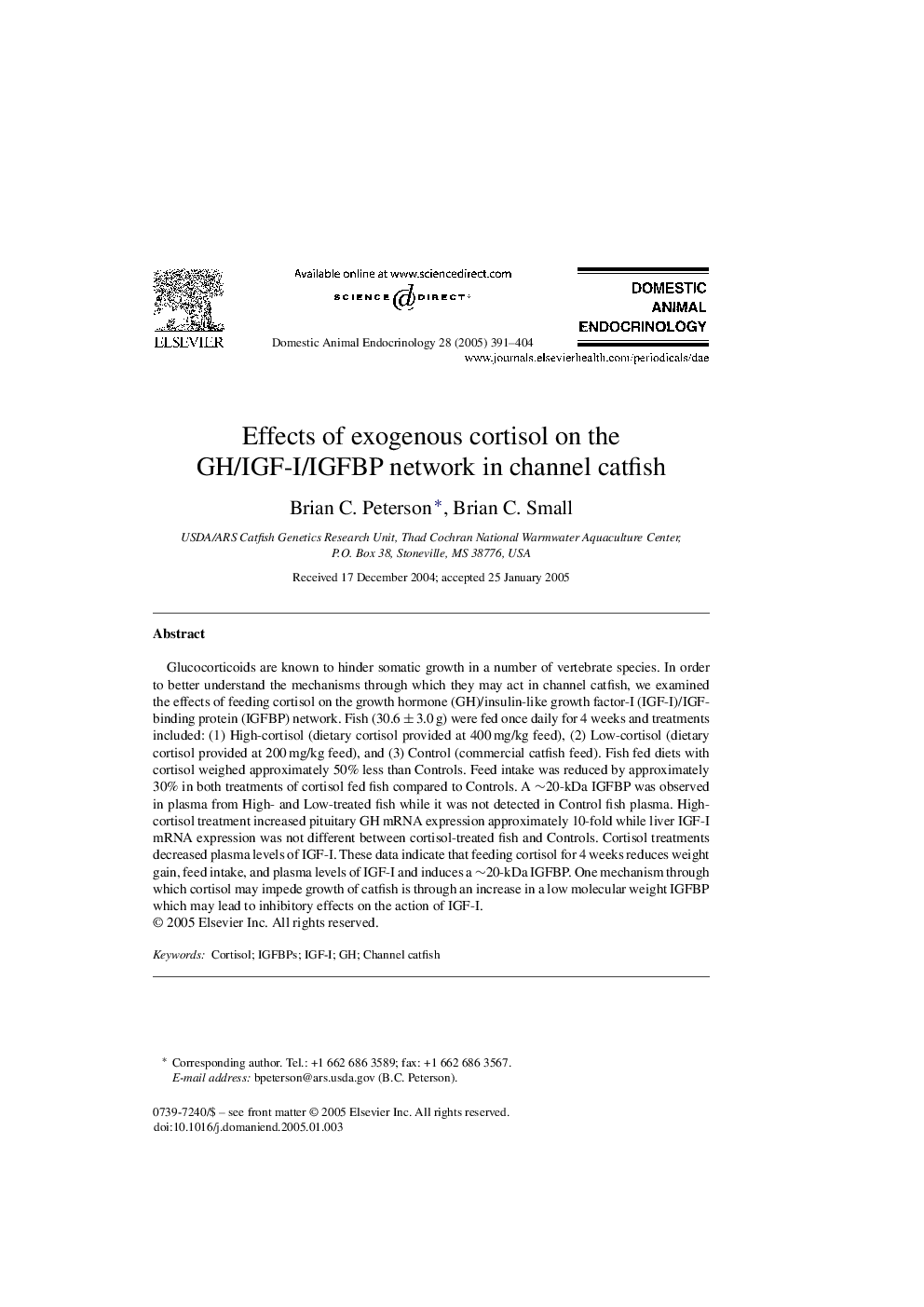| Article ID | Journal | Published Year | Pages | File Type |
|---|---|---|---|---|
| 8967220 | Domestic Animal Endocrinology | 2005 | 14 Pages |
Abstract
Glucocorticoids are known to hinder somatic growth in a number of vertebrate species. In order to better understand the mechanisms through which they may act in channel catfish, we examined the effects of feeding cortisol on the growth hormone (GH)/insulin-like growth factor-I (IGF-I)/IGF-binding protein (IGFBP) network. Fish (30.6 ± 3.0 g) were fed once daily for 4 weeks and treatments included: (1) High-cortisol (dietary cortisol provided at 400 mg/kg feed), (2) Low-cortisol (dietary cortisol provided at 200 mg/kg feed), and (3) Control (commercial catfish feed). Fish fed diets with cortisol weighed approximately 50% less than Controls. Feed intake was reduced by approximately 30% in both treatments of cortisol fed fish compared to Controls. A â¼20-kDa IGFBP was observed in plasma from High- and Low-treated fish while it was not detected in Control fish plasma. High-cortisol treatment increased pituitary GH mRNA expression approximately 10-fold while liver IGF-I mRNA expression was not different between cortisol-treated fish and Controls. Cortisol treatments decreased plasma levels of IGF-I. These data indicate that feeding cortisol for 4 weeks reduces weight gain, feed intake, and plasma levels of IGF-I and induces a â¼20-kDa IGFBP. One mechanism through which cortisol may impede growth of catfish is through an increase in a low molecular weight IGFBP which may lead to inhibitory effects on the action of IGF-I.
Keywords
Related Topics
Life Sciences
Agricultural and Biological Sciences
Animal Science and Zoology
Authors
Brian C. Peterson, Brian C. Small,
